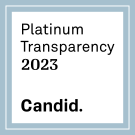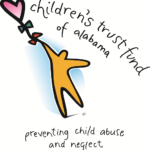Many of us may have sat through a drug prevention assembly where the professionals or advocates come and explain to you or your children how to say, “no” to drugs. At the time, you may have paid attention, and then had a quick 5-minute chat with your child thinking “my child is very responsible and would never put themself in a situation where drugs are present.”

Based on the fact that substance use is now a very common and prominent issue in middle and high schools today, it has become clear that most adolescents and teens do not just say “no” when it comes down to it. Many students start misusing substances during middle school or high school, which then later grows into a substance addictions issue. They may start just to feel some instant gratification, but it then snowballs into abuse, resulting in an array of negative effects, which will cause more harm in the future. Brain damage, stress, depression, anxiety, and other mental disorders are all possible effects of drug abuse. Family relationships may become strained, because parents grow strict as a result of concern for their children. As a result, children continue to rebel and push away their relatives because they think that others don’t understand their true problems. Affected students start caring less about getting good grades, because studying requires long periods of being focused and grades only stay good if there is a constant input of effort. Overall, substance abuse results in long term brain damage on adolescents, which in turn has a largely negative impact on their mental health/stability, academics, and familial relationships.
 Many people who suffer from substance use disorder, report that it began during high school. Most United States high schools report about a fourth of their students using substances. It is quite easy for students to get their hands on illegal substances with the underhand selling of weed and Juuls becoming increasingly popular. Christopher Hammond, an Assistant Professor of Child Psychiatry at John Hopkins, affirms that “80% of youth experiment with drugs or alcohol before adulthood” (Hammond). This goes to show that a large majority of people tend to use some kind of substance before becoming of age and start trying out drugs during adolescence. Addiction has been a prominent issue especially among students in high school for decades due to their developing brains being most susceptible to substance abuse and addiction. Drugs release an excess amount of dopamine to the brain, and since adolescent brains have yet to fully develop and settle, they become chemically dependent on substances for dopamine (Whitesell).
Many people who suffer from substance use disorder, report that it began during high school. Most United States high schools report about a fourth of their students using substances. It is quite easy for students to get their hands on illegal substances with the underhand selling of weed and Juuls becoming increasingly popular. Christopher Hammond, an Assistant Professor of Child Psychiatry at John Hopkins, affirms that “80% of youth experiment with drugs or alcohol before adulthood” (Hammond). This goes to show that a large majority of people tend to use some kind of substance before becoming of age and start trying out drugs during adolescence. Addiction has been a prominent issue especially among students in high school for decades due to their developing brains being most susceptible to substance abuse and addiction. Drugs release an excess amount of dopamine to the brain, and since adolescent brains have yet to fully develop and settle, they become chemically dependent on substances for dopamine (Whitesell).
Drug abuse has many causes, most of which are related to untreated past trauma, poor personal relationships, bad coping skills, or poor mental health. Parental relationships particularly have a large effect on students engaging in substance abuse. Mackenzie Whitesell, a Director of Health, points out that peers can be a cause of addiction or cause of family issues which then leads to addiction and the same goes for students who become a part of a gang. (Whitesell) In most cases, the peer group or gang first initiates the substance abuse, but the backlash received from parents throws gas onto the fire and pushes the student towards drug abuse even more. In the fact sheet, “Adolescent Alcohol and Other Drug Abuse”, Matheson explains that abuse, poor modeling from parents, chaos at home, poor communication between parents and children, and availability are all aspects of parental relationships that can cause high levels of substance abuse within young adults. (Matheson) Children, consciously or unconsciously, model themselves after their parents. If parents portray negative behaviors, the child will do so as well. In the case of familial abuse or trauma, however, those teens do not have good role models in addition to being traumatized so they have no way to know how to act or cope healthily which is why they turn to chemical relief.

Talk to your children daily and establish a relationship with them so that they feel comfortable expressing their
emotions. This will serve as a healthy coping mechanism of discussing your emotions, instead of bottling them up inside, as well as improving your familial relationship which will keep them from abusing drugs to rectify their emotional state. Additionally, researching your local community addiction prevention services would help you gain more valuable information on the subject and keep you updated on recent drug trends. This will help you gain more knowledge and catch your teen’s substance abuse early on. Catching the substance use early on is pivotal to prevent addiction, as it is easy to rectify behaviors that are newer, and the adolescent would not be chemically reliant on the substance.
Bibliography
Bahr, Stephen J., et al. “Family, Religiosity, and the Risk of Adolescent Drug Use” Journal of Marriage and the Family, vol. 60, no. 4, 1998, pp. 979-992. eLibrary, https://explore.proquest.com/elibrary/document/219766807?accountid=164834,
Hammond, Christopher J, et al. “Neurobiology of Adolescent Substance Use and Addictive Behaviors: Treatment Implications.” Adolescent Medicine: State of the Art Reviews, U.S. National Library of Medicine, Apr. 2014, www.ncbi.nlm.nih.gov/pmc/articles/PMC4446977/.
Kooreman, Harold E. “The Impact of Substance Use on the Developing Brain.” Fsph.iupui.edu, IUPUI, July 2017, fsph.iupui.edu/doc/research-centers/The-impact-of-substance-use-on-the-developing-brain.pdf.
Matheson, J.L, and R.T McGrath . “Adolescent Alcohol and Other Drug Abuse”. Extension, 13 Apr. 2016, extension.colostate.edu/topic-areas/family-home-consumer/adolescent-alcohol-and-other-drug-abuse-10-216/.
Whitesell, Mackenzie, et al. “Familial, Social, and Individual Factors Contributing to Risk for Adolescent Substance Use.” Journal of Addiction, vol. 2013, 20 Mar. 2013, pp. 1–6., doi:10.1155/2013/579310.








